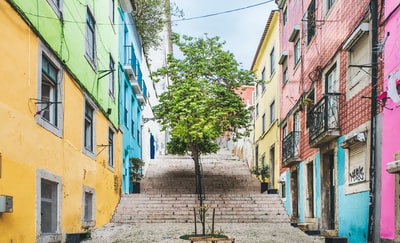 Hierarchy- The disruption of hierarchy is one of the poem’s main themes. Satan and his devils challenge the hierarchy of heaven because they resent having to praise and worship God and believe they should also have power. God is shown to be more powerful by chasing them out of heaven and casting them into hell. Although Satan sets up a parliament where he takes suggestions and votes, ultimately he is a monarch ruling over hell with Beelzebub as the second in command. God remains at the top of the hierarchy no matter what Satan does.
Hierarchy- The disruption of hierarchy is one of the poem’s main themes. Satan and his devils challenge the hierarchy of heaven because they resent having to praise and worship God and believe they should also have power. God is shown to be more powerful by chasing them out of heaven and casting them into hell. Although Satan sets up a parliament where he takes suggestions and votes, ultimately he is a monarch ruling over hell with Beelzebub as the second in command. God remains at the top of the hierarchy no matter what Satan does.
During their meeting Mammon suggests that they should all have individual freedom and not forced servitude. Although the narrator tells us disobedience to God has dreadful consequences, Milton does explore a democratic alternative to sovereign power. This type of power means nobody else has a voice and the leader has absolute power over their subjects.
Heaven is always described as being high up, with higher towers and far, far above the recesses of hell. Earth hangs on a gold chain between heaven and hell, balanced between the two like a pendulum so that Satan reaches it after rising up from hell, which is below. Therefore there is a physical hierarchy to the world of Paradise Lost. Surrounding this ordered world is Chaos, the space in between the order, ready to disrupt it at any time and thus portrayed as terrifying.
Power- Satan is never described as meek and powerless, his punishment for trying to rule heaven, is ruling in hell. He is described as ‘Majestic though in ruin: sage he stood [ 305 ]/ With Atlantean shoulders fit to bear/ The weight of mightiest Monarchies,’ which describes him as king like and strong even though he is in hell. The immense power he has in hell means that his suffering is the worst and his evil the greatest.
Hubris– Excessive pride and delusions of grandeur cause Satan’s fall. Although Satan still believes he is all powerful in hell, the narrator reminds us that he is nothing compared to God.
Christianity- Milton was a Protestant Christian who, in the English civil war, sided with the Republicans, who were Puritans. The narrator of the poem compares himself to prophets from the Old Testament of the Bible, calling of the ‘heavenly Muse’ to inspire him to write the word of God just as they did.
In book two Milton talks about man, and how they were to be God’s creatures, like angels, and yet over the course of the poem they fall to Satan’s temptation and lose paradise. Unlike Satan, man can be rescued according to Christianity and later in Paradise Lost, Milton shows God sending Christ to die for them.
Death and Sin- In Christianity these are products of the Fall because when Adam and Eve reject God, they lose paradise and eternal life, their sin cannot be forgiven yet and so death awaits them. In the poem Satan doesn’t seem to realise that the monsters come from him. Sin is disgusting, she is a woman, represented by the sin of lust in particular as it is her lower body that is distorted and her upper body remains tempting. This could be seen to foreshadow Adam’s fall as he is persuaded by Eve. Death is a darkness and nothingness that was literally born from sin. In the gothic genre, the sexuality of women is terrifying to men and often a sign of madness or the disruption of nature.
Disorder- On his way to earth, between heaven and hell, Satan meets ‘Rumor next and Chance, [ 965 ]/ And Tumult and Confusion all imbroild,/ And Discord with a thousand various mouths.’ The images of disorder and chaos are another way Milton evokes terror, nothing is in its right place, nothing has a boundary, anything can happen. This can be linked to the Gothic because a key dialectic in the genre is between reason and the supernatural where anything is possible.
Hell- Hell is a place without God, without hope, full of despair. The only things there are darkness and fire. Most of the images to describe hell are of enormous scale, yet there is mainly emptiness and fallen angels.
It is the exact opposite of heaven: rather than being full of joy they feel an absence of joy; the songs of praise only, ‘charm the sense,’ rather than sincerely praise God or bring real joy; where heaven gave knowledge of the ultimate truth and enlightenment, the rebels in hell can think and argue all they want but it will be in vain, because they will never see the light of God.